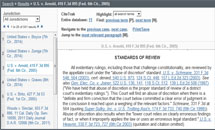The United States is unique among all nations in that our national constitution is 100% a secular document. The First Amendment enjoins officials from establishing an official religion, just as it forbids them from making laws grounded in religious precepts. Jesus, despite what you may have heard, did not sign the Constitution. The Constitution did not come from Heaven. It did not come from Him. It came from us.
The job of the Supreme Court – and every court – is to say what the law is. We know this because the court itself says so: “It is emphatically the province and duty of the Judicial Department to say what the law is.” Marbury v. Madison, 100 U.S. 1 (1803).
In other words, every official act committed by your local, state or national government is constitutional, until a judge says otherwise. Everything.
Last year, Antonin Scalia wrote a book called: Reading Law: The Interpretation of Legal Texts. Justice Scalia is a proud, so-called “textualist.” Reading Law, all 567 pages (a hardbound copy of which sits right here to my left) is a book devoted exclusively to the topic of “textualism.”
On page 441, in his “Glossary of Legal Interpretation,” Scalia defines “textualism” as “the doctrine that the words of a governing text are of paramount concern.” Webster’s defines “doctrine” as “a principle of law established through past decisions.”
Simple enough. With this as background let us turn to the transcript of Tuesday’s oral argument on same sex marriage, wherein Scalia, echoing Marbury, catches Ted Olson flat-footed:
JUSTICE SCALIA: We decide what the law is. When did it become unconstitutional to exclude homosexual couples from marriage? 1791? 1868? When the Fourteenth Amendment was adopted? When do you think it became unconstitutional? Has it always been unconstitutional? When did it become unconstitutional to prohibit gays from marrying? Was it always unconstitutional? When did that happen? When did that happen?
Ten times Scalia hammers Olson. Ten times. When finally, Olson serves up this mealy-mouthed response:
There’s no specific date in time. This is an evolutionary cycle.
Scalia’s entire line of questioning was disingenuous and Olson should have called him on it. As Scalia knows, it is entirely constitutional for the 41 remaining states to forbid men from entering into a marriage contract with each other. In those same states, women are also forbidden from entering into a marriage contract with each other. It has never been otherwise.
Olson went to court to get a majority of six Catholics and three Jews (six Harvard, three Yale) to say what the law is. That the court has never held that the foregoing practices are unconstitutional is the whole problem. It is not for Ted Olson to say what the law is. He has no power. The best Ted Olson can do is say what he thinks the law should be. His opinion carries the same legal weight as Honey Boo Boo’s.
So, why the gamesmanship from Scalia? I mean, Scalia knows contract law. He knows marriage is a secular contract. He knows it is an economic contract. He knows the blessing of a priest is meaningless absent a blessing from the state. But most of all, as a confirmed Catholic and self-annointed textualist, this father of nine knows that when it comes to marriage, the Fourteenth Amendment runs afoul of Catholicism.
If it is true as Scalia proclaims in his book, that “words of a governing text are of paramount concern” then consider the controlling language of the Fourteenth Amendment which is that “no state shall deny to any person the equal protection of the laws.”
One of those laws is the First Amendment. In other words, “freedom of expression.” This phrase appears not in the First Amendment, but in more than 200 Supreme Court opinions issued since 1921. These judicial opinions constitute a First Amendment Doctrine to which Scalia is duty-bound to follow.
But, a ruling on the merits in favor of Olson’s side, would mean that Scalia, Alito, Thomas, and Roberts – orthodox Catholics all — would have to subordinate a deeply held religious belief to a secular legal doctrine. This is what the court’s decisions compel them to do and they can’t do it.
Hence the bully tactics.
If a government can predetermine participants — exclusively along gender lines — in the most important contract decision an individual can make, the United States is a liberty-free zone. The only thing evolutionary is that it took us 150 years since the Fourteenth Amendment was ratified to figure this out. What a sad comment on the extent to which the Constitution and the Bill of Rights have been recast by neocons (who don’t want to know) and cast aside by neolibs (who think they know better).
That which is so simple has been made confusing through the popularity of phrases like “separation of church and state.” This phrase places organized religion and organized government on equal footing; suggesting that the First Amendment imposes a duty on religious organizations to behave in a certain way. The First Amendment does no such thing. The First Amendment imposes a duty only on institutions of government, and it does this not by separating “church and state,” but by separating state from church. In his second inaugural address — lasting all of two minutes — President Washington recognized the separation of state from church as an “injunction.”
A plain reading of the Fourteenth Amendment reveals that states are compelled to issue marriage licenses to same-sex couples. There is no other way to read it. My “paramount concern” is that this uber-establishment version of the Supreme Court will contrive a way to say otherwise. Textualism be damned.
I, therefore hope the court refuses to reach the question.






